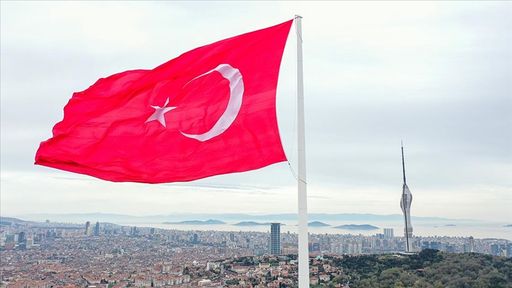A key milestone in Ankara’s “Terror-Free Türkiye” initiative has been marked on Sunday as the terror group PKK has announced that it has been withdrawing all its forces from Türkiye to northern Iraq.
The PKK terror group said in a statement read out in the Qandil area of northern Iraq’s Sulaymaniyah that it was implementing the withdrawal of all its forces within Türkiye.
The statement said the decision to end the terror organisation’s armed presence and activities was taken in May under the directives of its jailed ringleader, Abdullah Ocalan.
A group of 23 PKK terrorists who had reportedly arrived from Türkiye were present at the site of the announcement.
In July, a group of PKK members destroyed their first batch of weapons, which was described by Türkiye as "an irreversible turning point".
The group, designated as a terrorist organisation by Türkiye, the US and the EU, has been waging a decades-long terror campaign in Türkiye that has led to tens of thousands of deaths since the 1980s.

Efkan Ala, Vice Chairman of governing Justice and Development Party (AK Party), said the latest announcements and measures were “another major stage left behind in the elimination of terrorism.”
“With the complete eradication of terrorism, which has long been a shackle on our nation’s feet, the doors to a new era will open," he said.
AK Party spokesperson Omer Celik said the ongoing disarmament and dissolution of the PKK’s armed structures in Türkiye, Iraq and Syria were concrete results of the “Terror-Free Türkiye” initiative.
He described the initiative as “a strategic and historic step to protect our democracy from all threats,” adding that it represents “a stance against attempts to impose imperial influence in the region through terrorist organisations.”
Celik said the process, supported by President Tayyip Erdogan’s “strong state leadership” and guided by parliament’s National Solidarity, Brotherhood and Democracy Commission, “continues to yield positive results.”
He added that Türkiye remains alert to any attempts to provoke instability in the region, including political, intelligence and operational efforts to derail the process.




















